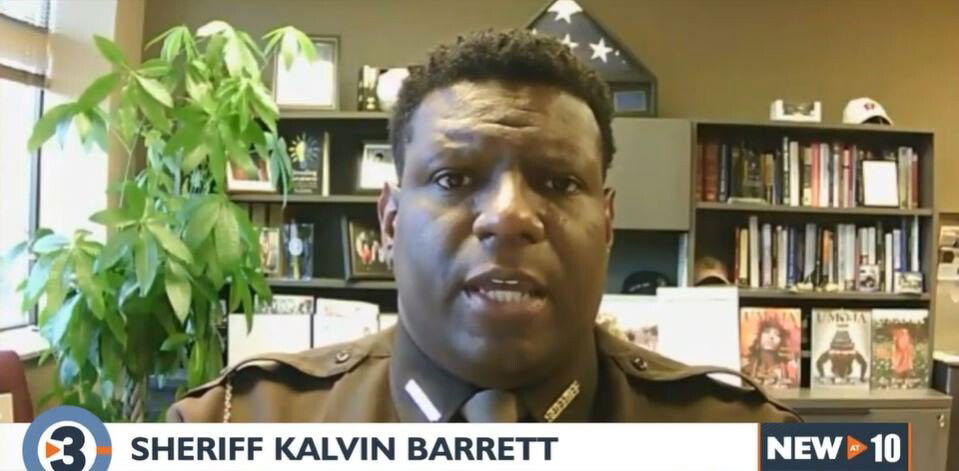County leaders disagree over how to fund rural mental health response

According to Sheriff Kalvin Barrett
By Arman Rahman
Click here for updates on this story
MADISON, Wisconsin (WISC) — The need for adequate mental health response in rural areas is growing at an astounding rate. Dane County officials say last year, the sheriff’s office responded to 1,400 calls with a mental health component, but those officials differ on how to build a response system.
“We’ve got a solution to a real challenge that exists right now,” County Executive Joe Parisi said.
In his budget for next year, Parisi proposed $250,000 for civilian mental health professionals at each Dane County precinct and $190,000 for their own unmarked vehicles for a total of $440,000.
“And so, when a call comes into 911, that now would likely be responded to by law enforcement. If it is deemed appropriate, we would be able to send out a civilian mental health care provider in a civilian vehicle,” Parisi said.
But his solution didn’t garner support from the Health and Human Services Committee Tuesday night, sparking backlash from Parisi and Sheriff Kalvin Barrett in a memo to the Finance Committee, which read in part:
“The budget initiative that was deleted is detrimental to the county’s behavioral health care goals and our shared desire to reduce law enforcement contacts with those in crisis. The funding deleted stood to double available staffing resources from Journey Mental Health for rural behavioral health care services.”
Committee Chair Heidi Wegleitner told News 3 Now Wednesday “the money that County Executive Parisi proposed in the budget was for law enforcement crisis response.”
According to Sheriff Kalvin Barrett, the proposal would add to the existing three crisis workers employed by the Sheriff’s Office.
“Right now, we currently send a deputy along with these part-time mental or embedded crisis workers to calls,” the sheriff said, “Aad once the scene is stabilized, the deputy takes a step back and the embedded crisis worker takes over.”
For Wegleitner, “This isn’t about taking money. This is about building a model where we don’t have people with guns and uniforms showing up to a behavioral health crisis — we have paramedics and mental health workers who are treating folks like patients instead of suspected criminals.”
The Health and Human Needs Committee amended the budget, reallocating the $250,000 to the City of Madison’s CARES Crisis Response Team, “and facilitat(ing) the development of a county-wide non-law enforcement mobile crisis response effort,” its decision read.
“It could mean partnering with other municipalities, it could mean the county sharing more of the mental health worker cost share and having the city of Madison take on more of the paramedic cost,” Wegleitner said.
“I think that the decision that was made last night really did a disservice to many of the rural areas of Dane County,” Barrett said. ” The town of Primrose has completely different needs than the town of Dunkirk, the town of Dunkirk has completely different needs than Black Earth, or Mazomanie, or the town of Albion, and we’ve got to be able to understand exactly what those needs are and start to build and expand our programs, which is what we’re trying to do right now.”
According to Barrett, 80% of calls his deputies answer are mental health calls.
Both he and Parisi think time is of the essence.
“Let’s look at [expanding CARES],” Parisi said. “But you know, that’s a study that’s going to take a year or two, three years to implement, so in the meantime, don’t deprive people outside of Madison of critical mental health services because where you live shouldn’t determine your access to emergency mental health services.”
Barrett said with time and attention, the county-wide team could grow to mirror CARES for all parts of Dane County.
“And that’s for us to have a trained mental health professional to respond to these calls instead of law enforcement,” he said.
If you or someone you know is struggling with mental health issues or considering suicide, there are resources available to help. Calling 988 nationwide will connect you to the Suicide and Crisis Lifeline. In Dane County, Journey Mental Health Center has a 24/7 suicide prevention hotline at 608-280-2600.
Please note: This content carries a strict local market embargo. If you share the same market as the contributor of this article, you may not use it on any platform.